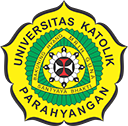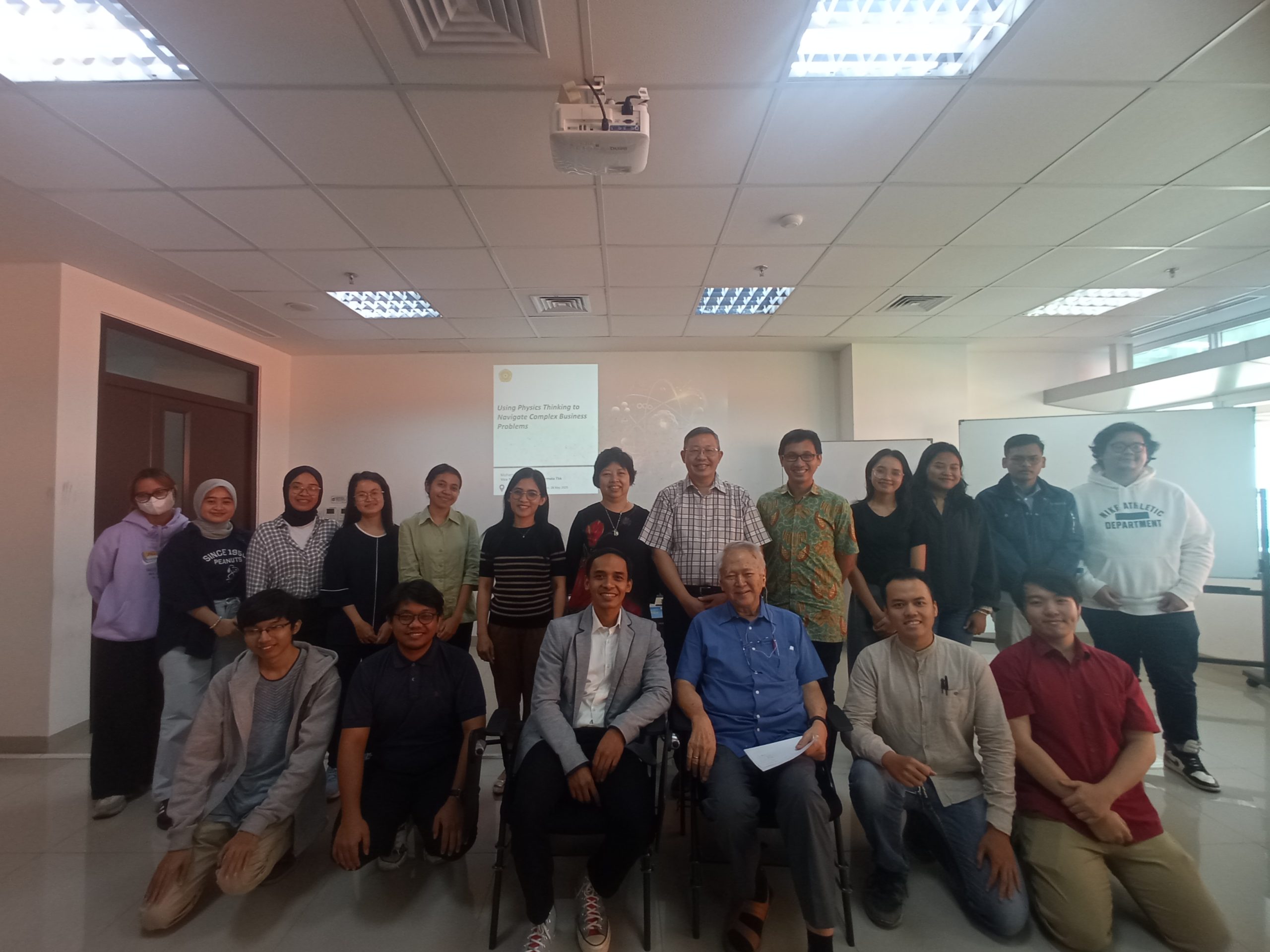Using Physics Thinking to Navigate Complex Business Problem
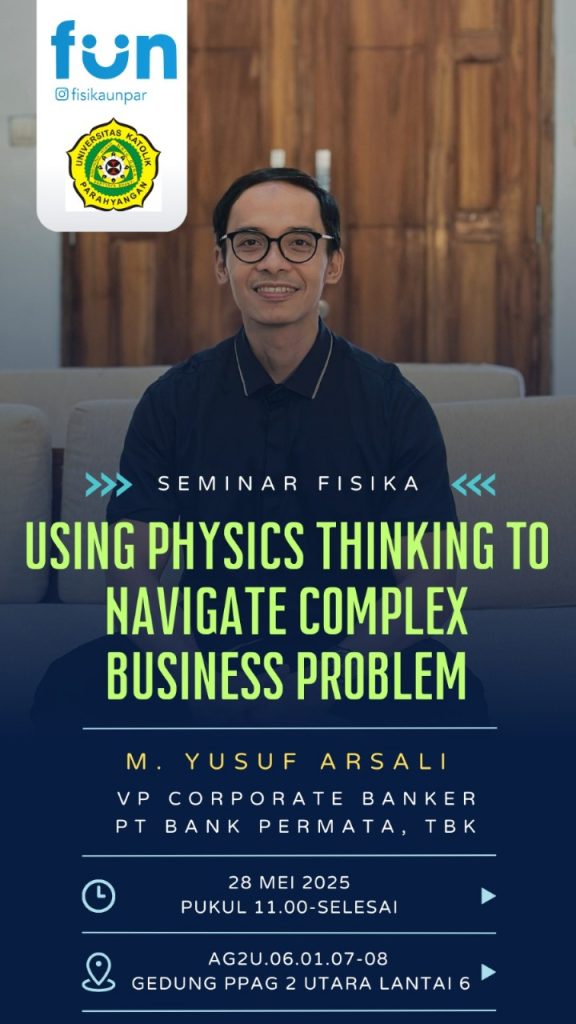
Bandung – On Thursday, May 28, 2025, the Physics Study Program once again welcomed a guest to share how physics can also be applied in other fields. This time, the Physics Study Program hosted Mr. Yusuf Arsali, a VP Corporate Banker from PT. Bank Permata, Tbk. He is a graduate of the Physics Department at the Bandung Institute of Technology (Physics 2003). Mr. Yusuf shared how studying physics has helped him work in the banking industry.
As an opening, Mr. Yusuf explained that in the financial industry, which appears full of opportunities, two fundamental ways of thinking—systems thinking and analytical thinking—will remain highly relevant and important until 2030. These two modes of thought are not merely soft skills, but essential foundations for navigation and success. According to Mr. Yusuf, every physics student certainly possesses these ways of thinking, as students are trained and accustomed to solving problems they encounter. Mr. Yusuf gave an example of solving exercises from Boas’ book for the Mathematical Physics course, something experienced by all physics students.
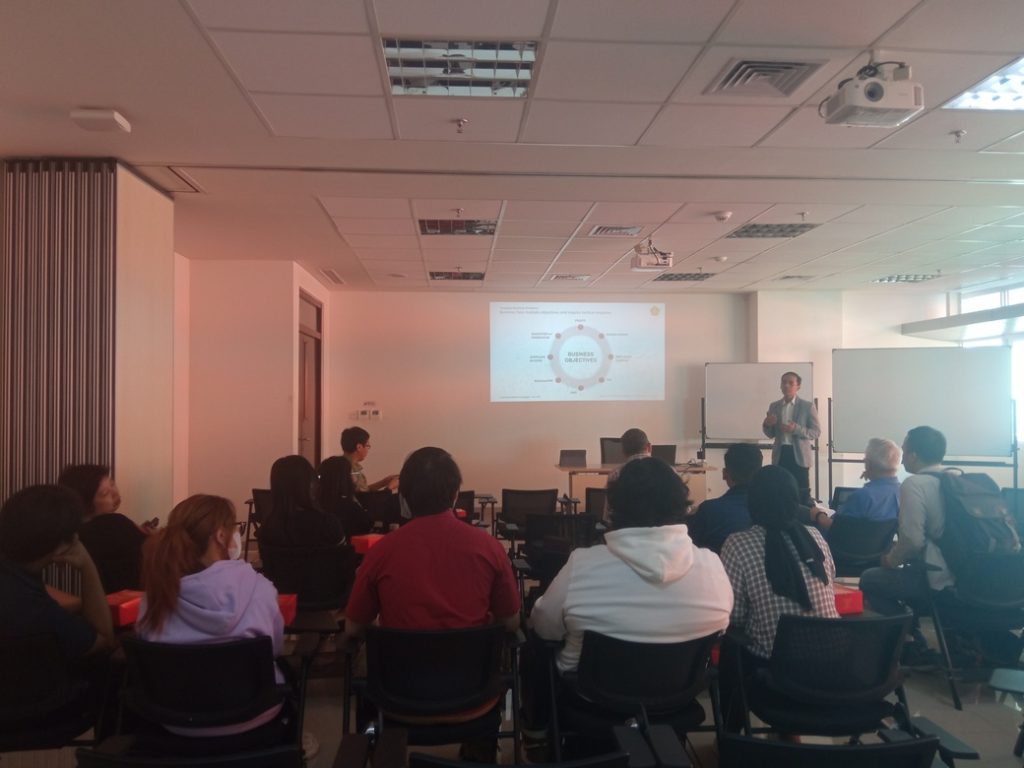
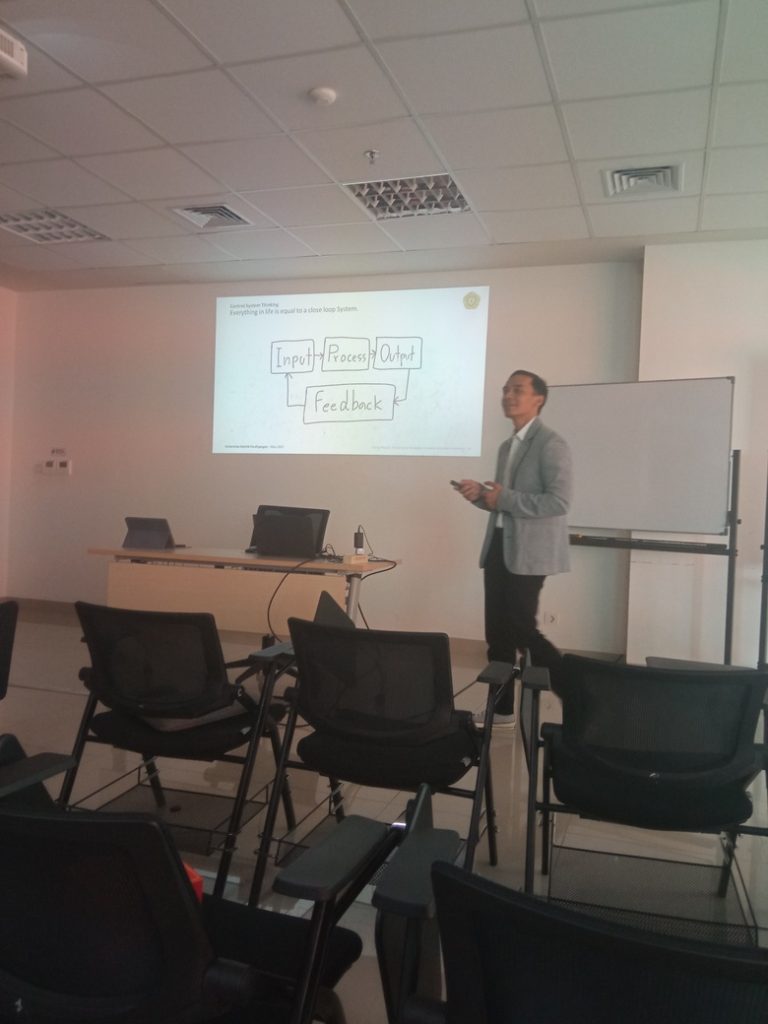
Three Key Things for the Future
According to Mr. Yusuf, as physics graduates, we need to maintain the following three important aspects, whether working in banking or in other fields:
- Solving Problems on a Large Scale (Systematic and Analytical Thinking): This is at the core of discovering and creating value. Most physics graduates, when given a problem, tend to think in great detail, even down to the technical design. Typically, when first asked for a solution, we ask: “What is the root cause of the problem?” The same applies to banking: when creating a solution, we need to ask, “Who is our target market?”, “What does the market look like for our clients?”, and “How does the business ecosystem work as a whole?” Professional consultants even use this approach to understand strategic thinking. We must maintain simplicity in thinking but always know what we aim to achieve. In business, this means ensuring that every function aligns with the overall objectives.
- Bridging Two Worlds (Risk Management): The financial industry, in particular, demands the ability to bridge different perspectives, especially for us physicists entering the banking world. This is very evident in risk management, where we must understand potential threats while still identifying opportunities. Use our critical and analytical thinking skills so that we can continue finding solutions to the problems we face.
- Creating, Not Just Passing Through: In a fast-moving world, we cannot just be consumers. We have to be initiators—thinking about what we can create or do to survive and grow wherever we are, adapt to changes, and remain relevant. We need to lead the realization and development of ideas we propose so they can be applied to various problems.
After Mr. Yusuf’s explanation, questions arose such as how we can develop leadership in our work early on. According to Mr. Yusuf, to develop effective leadership in this dynamic environment, we must understand that analytical thinking is its foundation. Leadership requires more than just analysis; it also needs the ability to inspire. One crucial aspect of leadership is strong communication skills.
How do we build this? One of the best ways is to observe our surroundings—find out where we can learn, and never underestimate simple activities that can trigger growth. As a concrete suggestion, start by setting clear goals. For example, if the goal is to generate new business, identify your strengths and weaknesses (SWOT analysis). Then, the next step is to determine how to convince partners to follow your vision—this is a real form of leadership.
Ultimately, it is important to always demonstrate concretely what we have done in an activity or, in other words, to properly “highlight” our work so that we can convince potential partners and compete effectively in various contexts.
The Physics Study Program would like to thank Mr. Yusuf for his willingness to share his knowledge. We hope this seminar motivates students to further study and develop their skills. We also wish Mr. Yusuf continued success in his career. See you at the next Physics Seminar!


